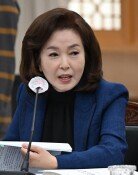Coordinating between civil affairs secretary and Justice Ministry to prevent poor verification
Coordinating between civil affairs secretary and Justice Ministry to prevent poor verification
Posted May. 14, 2024 07:51,
Updated May. 14, 2024 07:51
When President Yoon Suk Yeol took office in May 2022, he abolished the Office of the Senior Secretary to the President for Civil Affairs and established the Personnel Information Management Group at the Ministry of Justice to conduct personnel verification. There was a blend of anticipation and anxiety at the same time. When asked by a reporter whether it was appropriate for the Ministry of Justice to conduct personnel verification, President Yoon responded, “The United States does that.” He said that the President’s Office did not collect information on public officials’ misconduct and expressed its intention to resolve the controversy over surveillance by the Office of the Senior Secretary to the President for Civil Affairs, which had arisen in each past administration.
The reason the public first had expectations, as President Yoon confidently answered, is that the division of roles between personnel verification agencies in the United States is thorough. The U.S. personnel verification system is structured so that after a public office candidate passes the White House's preliminary verification and submits answers to various questions, the Federal Bureau of Investigation (FBI) under the Justice Department takes over and interrogates them. The FBI cross-checks the candidate's family, relatives, neighbors, and coworkers and then reports to the White House, and the final decision is made by the White House. It is said that during this process, the FBI does not make any judgments or opinions about suitability or unsuitability. The FBI does the verification, but the roles are thoroughly divided so that the White House leads the personnel verification and makes the final decision.
The anxiety eventually became a reality. Attorney Jeong Soon-sin, who was appointed as the first head of the National Investigation Headquarters under the current government, resigned in one day due to the controversy over his son's school violence. Lee Kyun-yong, chief judge of the Seoul High Court, who was nominated as a candidate for the Supreme Court, had his appointment motion rejected by the National Assembly due to suspicions that he omitted unlisted stocks from asset reporting. Whenever controversy over poor personnel verification has arisen, the Ministry of Justice has explained that “its only role is to collect personnel verification data and hand it over to the President’s Office.” It was refuted that, like in the United States, the President's Office makes the final decision. However, it is still shrouded in mystery as to how the President's Office, without the Senior Secretary for Civil Affairs, makes the final decision and whether there is any room for the Ministry of Justice to intervene in this process. It remains unclear who will take responsibility for verifying poor personnel, the Ministry of Justice or the Office of the President.
Last Tuesday, President Yoon announced the revival of the Senior Secretary for Civil Affairs and the appointment of Senior Secretary for Civil Affairs Kim Joo-hyun, saying, “The function of listening to public opinion was too weak.” However, the President's Office has not revealed how personnel verification works, which will be the most important task of the Office of Senior Secretary to the President for Civil Affairs and will be divided with the Ministry of Justice. The Ministry of Justice's position is that there will be no change in the future. Still, the prevailing analysis is that with the revival of the Senior Secretary for Civil Affairs, also known as 'King Secretary to the President,' the weight of personnel verification will also shift to the President's Office. In that case, the President's Office should determine how the personnel verification work will be divided with the Ministry of Justice and then disclose it to the public. To prevent repeated poor personnel verification, responsibility must first be made clear.







